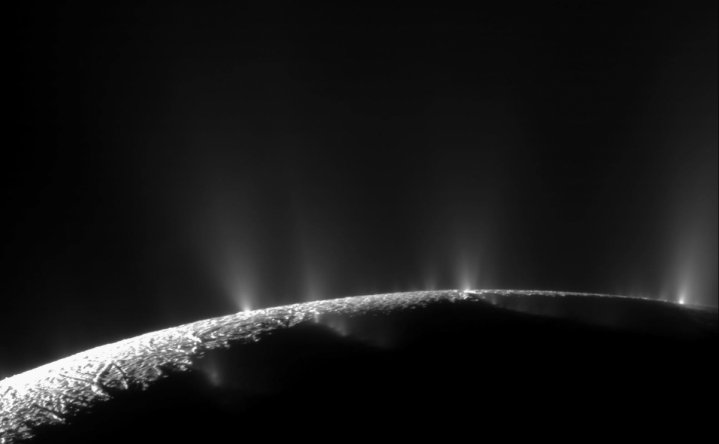
A new study conducted by researchers in Universität Wien in Vienna, Austria has hinted that alien life, particularly in microbial form, may be living in Saturn's moon Enceladus.
The study revealed that the warm, underground ocean on Enceladus offers a rich habitat for microbial organisms, and they also described Saturn's icy moon as 'hot spot' to find extra-terrestrial (ET) life. The researchers even assured that certain methane-producing microbes found on the earth are capable of surviving the harsh conditions on Enceladus.
Earlier, probes have found traces of methane on the surface of Enceladus, and the research team claims that these traces could be produced by microbial life forms tucked beneath the surface of the Saturn's moon.
The crust of Enceladus is made up of solid ice, while there is a warm ocean beneath it. The moon also has warm fractures at its south pole that fire out plumes of liquid. These plumes contain ingredients like methane, hydrogen, and carbon dioxide; all vital constituents necessary for life. Researchers believe that these factors make Enceladus a perfect place where we could search for alien life.
Researchers speculate that the microorganisms living in the sea of Enceladus feed on carbon dioxide and molecular hydrogen for growth, and they later release methane as a by-product.
During the study, researchers grew three different types of methanogenic archaea in laboratory conditions which are very similar to that of Enceladus. The team later found that at least one among the methanogenic archaea is capable of growing in harsh conditions characterized by the presence of chemicals like formaldehyde and ammonia. These chemicals are abundant in Enceladus which indicates that some species of methanogenic archaea can live on the moon of Saturn.
"These organisms have a very special and ancient physiology - they are one of the first evolutionary developments on this planet. Our results suggest that these organisms or similar could exist on Enceladus," said Dr Simon Rittmann, lead researcher of the study.
However, researchers made it clear that the presence of methane in Enceladus is not a concrete evidence of alien life, as it can also be generated by geochemical processes on the moon.









